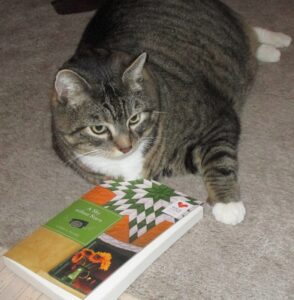
Every writer wants to improve, from the bestsellers to those chasing a first byline. How do you take writing instruction and actually use it in your work?
Writing Tip for Today: Let’s discuss some ways to integrate feedback, workshops and other instruction into your writing.
Books and Workshops
My writer’s library is stuffed, partly because I’m an incurable bibliophile and partly because I always aim to write better, more meaningful work. I have everything from the basic Strunk & White to inspirational pep talk books that encourage, such as Anne Lamott’s Bird by Bird.
I’ve collected books on writing for about 30 years now. When I was just starting out in the early 90s, I remember reading about how to write and thinking, yes, I’ve got it. Then, when I got to the keyboard, I’d stare blankly. How was that again? It was difficult for me to implement what I’d read with actual practice.
At workshops and critique sessions, I pored over feedback and the copious notes I’d taken. Sometimes, the way to better writing seemed clear enough. Other times, what sounded perfectly doable later was an abstract mess.
Open Skull, Pour in Advice
I soon discovered that abstract or global learning can’t replace those ten thousand hours of practice. If you think you can sidestep grueling critiques or a zillion rewrites in learning the writing craft, think again. I’m all for taking a new skill and trying it out. But don’t expect writing advice from any source to magically transform your work.
Reading widely and the best you can find is also often advised. True, but if you lean too heavily into another writer’s style, you’ll be imitative at best. While you practice, there’s nothing wrong with going through a J.K. Rowling period, but ultimately you’ll want (and need) to find your own voice.
If you receive feedback from a group or mentor, remember that you can’t please everyone—especially if you get feedback from different viewpoints. When you feel pressured to write this way or that way, check your gut and your purpose. Ask, who is my audience and what do I hope to communicate?
Ask, who is my audience and what do I hope to communicate?
The Long and Winding Road
I’m always eager to improve my writing, so I read a lot. After years of practice, I can more easily analyze structure, theme and metaphor. But first I had to learn and practice basic skills: correct grammar, concise writing, scene structure, theme and so on. I am still practicing all these things and more.
I also find that the more I write, the closer I can get to what I envision as the message I want to send. This is why revision is so crucial. I often don’t really crystallize my message until I’ve rewritten, rearranged or omitted parts several times. Even then, I like to let the work rest (that is, put it aside) for a time before I decide if the work is complete. I never reach perfection, but I also practice “letting go” when I feel that my core structure and theme are intact.
Perhaps the most important piece of learning to write better is to ask yourself some questions: Who am I? What am I trying to say? Whom do I wish to reach with the message or story? By understanding your own reasons for writing the lessons and pages of notes from that seminar will begin to make sense for you. Keep Writing!





